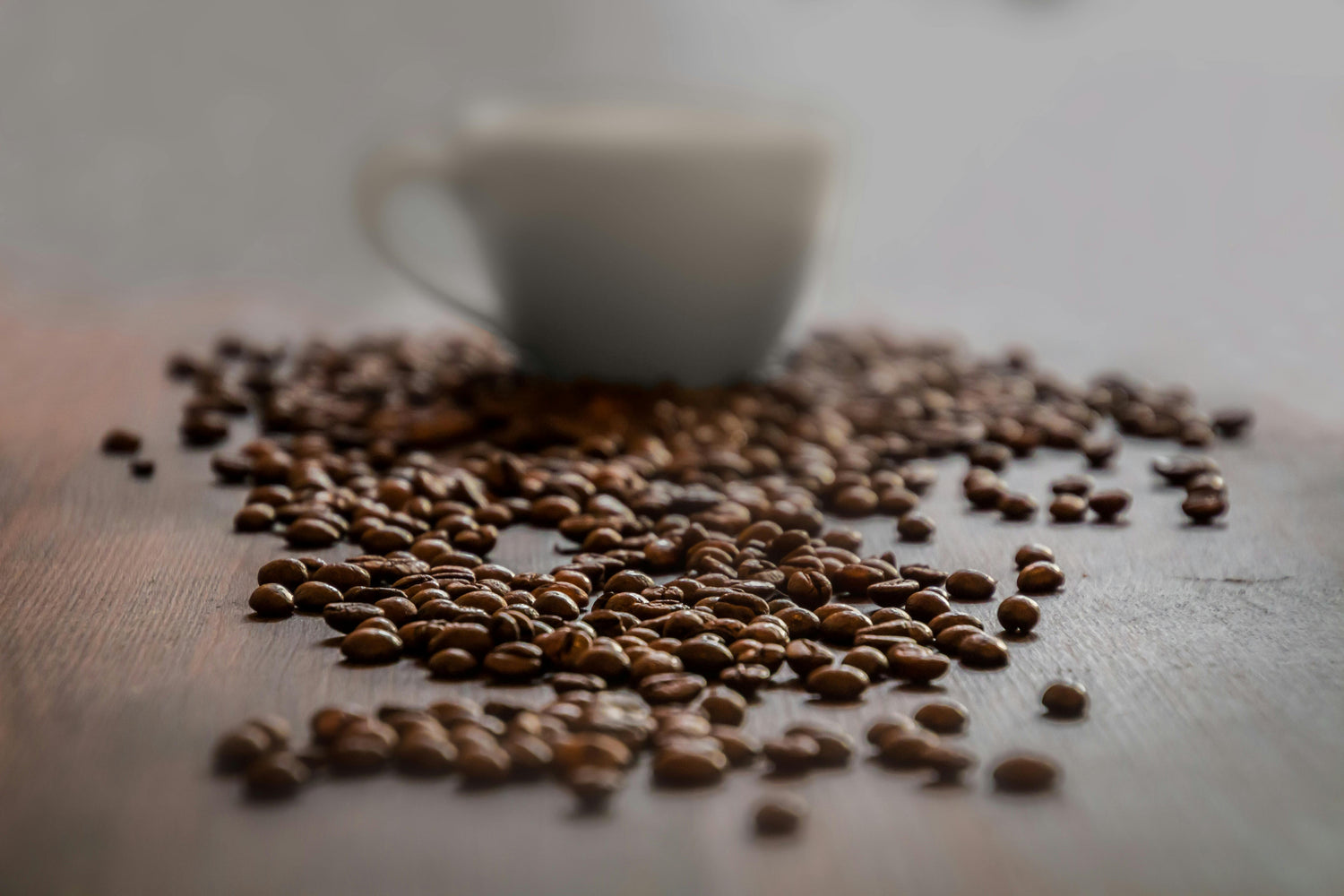For many, coffee is the ultimate morning ritual to kick-start the day with energy and chase away drowsiness. This daily routine has become essential for providing the mental clarity and focus needed to tackle our busy days.
But imagine a natural alternative that offers all the benefits (and more) of a cup of coffee, while being healthier and more effective, without the unwanted side effects. Enter cold bathing, a practice hailed for its revitalizing and energizing benefits. In this article, we'll examine the science-backed benefits of morning cold baths and compare them to the stimulating effects of coffee.
Morning Coffee: The Traditional Boost
For millions of people around the world, coffee is the quintessential morning ritual, providing an instant boost. Coffee is known for its stimulating effects, primarily due to caffeine. When consumed, caffeine quickly enters the bloodstream and reaches the brain, where it inhibits adenosine, a neurotransmitter responsible for drowsiness. This interference reduces the sedative effects of adenosine, promoting increased alertness and better concentration.
Here's what makes coffee so popular:
- Instant Alert : Caffeine stimulates the central nervous system, improving concentration and alertness.
- Increased Dopamine : Coffee boosts dopamine production, making you feel good and ready to take on the day.
- Ritual and Comfort : There is a psychological well-being linked to the morning coffee routine.
The initial energy boost from coffee can be particularly appealing, offering a quick fix for morning fatigue. It improves cognitive abilities and offers temporary relief from fatigue. However, this boost is fleeting, and once the caffeine begins to wear off, many people experience what's known as a "caffeine crash." You may experience a dip in energy, leaving you tired and craving another caffeine fix.
Caffeine Crash: Unwanted Side Effects
The caffeine crash occurs after the initial boost provided by coffee, characterized by a sudden drop in energy levels and feelings of fatigue. When the effects of caffeine wear off, adenosine, the neurotransmitter that promotes sleepiness, resumes its activity, causing a rebound effect that can induce drowsiness and lethargy. This crash can significantly disrupt daily routines, especially for those who rely heavily on coffee to maintain their energy throughout the day.
Additionally, excessive coffee consumption or consumption late in the day can disrupt sleep cycles. Caffeine's stimulant properties can linger in the body, making it difficult to fall asleep or get restful sleep. As a result, poor sleep quality worsens feelings of sleepiness and fatigue the next morning, perpetuating a cycle of sleep deprivation and daytime sleepiness.
Disadvantages of Morning Coffee:
- Caffeine Addiction : Over time, your body develops a tolerance to caffeine, requiring increasingly larger doses to achieve the same effect.
- Anxiety and Tremors : Excessive coffee consumption can lead to anxiety, agitation, and even rapid heart rate.
- Sleep Disruption : Caffeine can disrupt your sleep cycles, leaving you groggy the next day.
Cold Bath: The Ultimate Boost
Unlike coffee, cold baths offer a completely different approach to getting energy in the morning, without the caffeine addiction. Cold water acts as a powerful natural stimulant, immediately prompting your body to respond to the change in temperature. While it may seem intimidating at first, especially when contrasted with the warmth of your bed, the benefits of cold baths are undeniable.
When you enter cold water, your heart rate increases, and your breathing becomes deeper and faster as your body adapts to the heat stress. This response triggers a surge of adrenaline, also called noradrenaline, which acts as an instant wake-up call for your entire system.
The adrenaline release from a cold bath is invigorating, and you'll likely experience a surge of energy and mental clarity that can last for hours after the initial exposure. This natural awakening will leave you feeling refreshed and alert, far more so than a cup of coffee could offer. Unlike the gradual alertness induced by the caffeine in coffee, immersion in cold water provides a sudden, natural energy boost that instantly invigorates your senses.
Here's why a cold bath might be the best choice for a fresh, focused, and energetic day:
- Instant Mental Clarity : Exposure to cold stimulates the production of adrenaline and noradrenaline, making you alert and focused, just like caffeine, but without the downside of the crash.
- Sustained Energy : Unlike the temporary high of coffee, the cold shock gives you sustained energy throughout the day.
- Enhanced Recovery : For athletes and fitness enthusiasts, a cold bath helps reduce inflammation and speed up muscle recovery, preparing you for your next workout.
- Improved Circulation : Exposure to cold stimulates blood circulation, improving oxygenation and nutrient delivery throughout your body.
Why Cold Baths Outperform Coffee:
- Sustained Focus : Cold baths help maintain stable mental clarity and alertness without the risk of a midday crash.
- Mood Boost : Exposure to cold stimulates the production of endorphins, naturally improving your mood and reducing stress.
- No Jitters : With a cold bath, you avoid the side effects of caffeine like anxiety or jitters.
Caffeine vs. Cold Baths: Key Differences
- Mechanism : Caffeine works primarily through biochemical interactions in the brain, while cold baths stimulate the body's physiological response to cold.
- Speed and duration : Caffeine provides a rapid and relatively short-lived boost in alertness, whereas the effects of a cold bath are immediate and may last longer, depending on the individual.
- Physical vs. Mental Focus : Caffeine directly improves cognitive function, while cold baths improve mental clarity through a combination of physiological arousal and improved oxygenation.
- Anxiety and nervousness : Caffeine can worsen anxiety symptoms or cause feelings of nervousness, while cold baths can reduce stress, improve mood, and calm the mind through activation of the parasympathetic nervous system.
- Sleep : Caffeine can significantly disrupt sleep cycles, while cold baths have been shown to have beneficial effects on regulating circadian rhythms and improving sleep quality.
- Hydration : Caffeine acts as a mild diuretic, causing increased urination and dehydration.
- Heart rate and blood pressure : Caffeine can increase heart rate and blood pressure, which may pose risks for people with cardiovascular problems or hypertension. Cold water immersion has shown improvements in heart rate variability (HRV). Improvements in HRV indicate better autonomic nervous system function and improved cardiovascular health. Some studies suggest that repeated exposure to cold water may help regulate blood pressure by improving vascular tone and reducing inflammation.
- Digestive issues : Coffee can stimulate stomach acid production, potentially leading to acid reflux, heartburn, or gastrointestinal discomfort, especially in people with sensitive digestive systems. Cold therapy stimulates the vagus nerve, which plays a crucial role in regulating gastrointestinal motility and digestion. Activating the vagus nerve through cold exposure may help improve intestinal motility, promoting more efficient digestion and bowel movements.
Wake Up Differently: Opt for a Cold Bath and Transform Your Daily Energy!
Caffeine and cold baths offer different approaches to waking you up and improving your mental clarity. However, while caffeine can provide a quick energy boost, it also comes with potential risks and drawbacks. Cold baths, on the other hand, offer benefits that can be enjoyed at any time of day, but it's easy to see why so many people choose to practice them in the morning. They provide lasting mental clarity, improve mood, and promote recovery without the side effects of caffeine.
Ready to swap your coffee for a revitalizing dip? Explore our Rocean Cold Baths , designed to give you a powerful boost every day!




